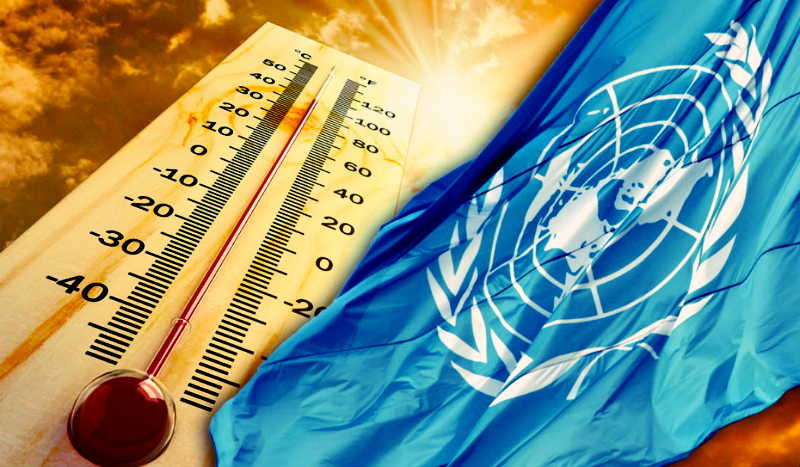Penna Dexter
On November 7th a United Nations conference on climate change convened in Marrakesh, Morocco. It’s been the plan for years that this meeting would take place just three days after the Paris Climate Treaty went into force, thus hastening its implementation.
Ninety-seven countries, accounting for approximately two thirds of global greenhouse gas emissions, have now ratified the treaty. The U.S. is not one of them. The treaty would require that the U.S. reduce its greenhouse gas emissions by 26 to 28% below 2005 levels by 2025.
During the campaign, Donald Trump said he’d pull the U.S. out of the Paris accords and stop funding the United Nations Framework Convention on Climate Change and its Green Climate Fund. Now he says he’ll “keep an open mind” about it. He should stick with his original promise because the Paris treaty will do little if anything to rein in global warming at great cost to the economy.
Environmental policy expert Bjorn Lomborg calculates that these cuts, if implemented between 2016 and 2030, would reduce temperature rises by a miniscule .09 degrees Fahrenheit. Dr. Lomborg estimates the hit to U.S. Gross Domestic Product at approximately $150 billion per year. Bloomberg calculates it at more like half a trillion dollars a year.
Mr. Trump also said he’d “cancel job-killing restrictions on the production of American energy.” He’s referring to the capabilities for fracking and the development of new drilling techniques that give us the ability to tap new reserves of oil and gas. The White House and the Environmental Protection Agency have responded with crushing regulations on this technology, which could otherwise boost our economy and essentially render the U.S. energy independent.
There’s a positive sign: Mr. Trump’s choice of Myron Ebell to head up the part of his transition team dealing with the EPA. At the Competitive Enterprise Institute, Mr. Ebell has been developing common sense policy that protects the environment yet minimizes industry-and-economy-destroying environmental regulation. It’s possible Myron Ebell himself may be the one the president chooses to head up the EPA. That has climate activists beside themselves.
Last week, they waited until darkness fell in Washington D.C. and beamed huge images onto EPA headquarters demanding that the Trump administration pick someone else. Students at Harvard and Georgetown have been demonstrating against his appointment.
The Wall Street Journal’s Kim Strassel pointed out in a column that the real battle will be over how to dismantle the repressive environmental regime the administration has constructed. She writes, “This is where the president’s broad-based rules have arguably done the most damage to the economy. It is also where the progressive left is most organized—and most emotional.”
Some of our most expensive regulations can be undone fairly easily, since Congress never passed them. But for the needed reset on the environment, Congress and the new administration have work to do.
 Listen Online
Listen Online Watch Online
Watch Online Find a Station in Your Area
Find a Station in Your Area










 Listen Now
Listen Now Watch Online
Watch Online
